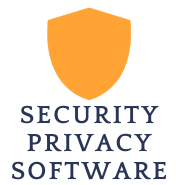
In today’s digital age, software has become an indispensable part of our daily lives. From operating systems and productivity tools to entertainment and gaming apps, software plays a crucial role in how we communicate, work, and play. However, the widespread availability of software on the internet has also created an opportunity for counterfeiters to produce and distribute illegal copies of popular software products.
1. What is Counterfeit Software?
Counterfeit software, also known as pirated or fake software, refers to unauthorized copies of software that have been made available for download or sale. These illegal copies are often sold at a fraction of the cost of the original product and are designed to look and function like the real thing. However, they contain hidden malware, viruses, and other malicious code that can harm your computer and steal sensitive information.
2. Why is Counterfeit Software Dangerous?
Counterfeit software is not only illegal, but it also poses a significant risk to your computer and your personal information. These illegal copies often contain hidden malware and viruses that can harm your computer, steal sensitive information, and even compromise your financial accounts. In addition, counterfeit software (more on https://authena.io/anti-counterfeit-software/)lacks the security updates and technical support offered by the original manufacturer, leaving you vulnerable to hacking and other cyber threats.
3. How to Identify Counterfeit Software?
Identifying counterfeit software can be difficult, as counterfeiters go to great lengths to make their products look and feel like the real thing. However, there are some warning signs that can help you identify fake software. These include:
- An unusually low price for the software.
- Lack of a valid license key.
- No option for technical support or updates.
- An unreliable or unfamiliar source for downloading the software.
- Poor grammar, spelling, and formatting in product descriptions and website content.
4. The Consequences of Using Counterfeit Software
Using counterfeit software can have serious consequences, both for individuals and for organizations. The legal consequences can include fines and even imprisonment, while the financial consequences can include the cost of replacing infected hardware and software. In addition, the use of counterfeit software can harm the reputation of an organization and damage customer trust.



